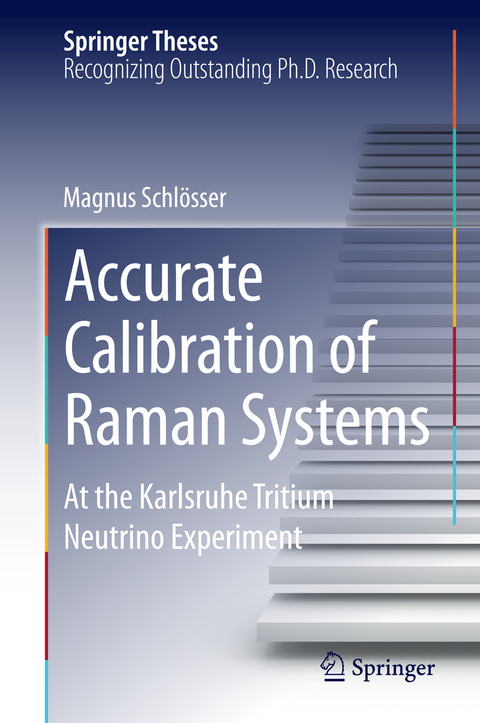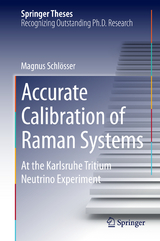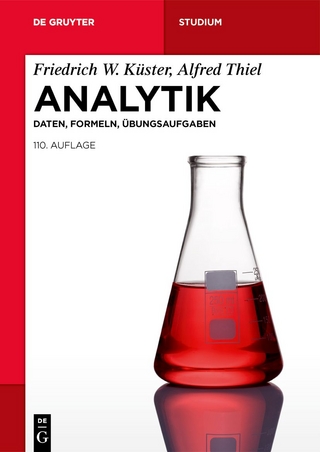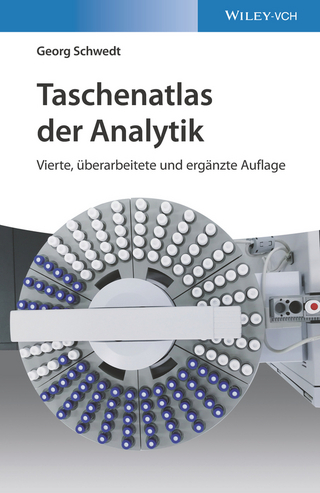Accurate Calibration of Raman Systems
Springer International Publishing (Verlag)
978-3-319-06220-4 (ISBN)
This thesis reports major contributions to developing and implementing new laser-spectroscopic precision tools to continuously monitor the isotope content of the windowless gaseous tritium source of KATRIN. The method of choice, Raman spectroscopy, is ideally suited for in-situ monitoring of all six hydrogen isotopologues. In a series of beautiful experiments the author obtained two independent novel calibration methods, first based on a comparison of experimental Raman depolarization ratios with corresponding quantum-chemical calculations, and second on a gas sampling technique. Both methods yield consistent cross-calibration results and, as well as yielding improvements in precision, will be of major importance in reducing systematic effects in long-term neutrino mass measurements. The methods developed in this thesis also have great potential to further broaden the applications of Raman spectroscopy to study extended sources such as in atmospheric physics.
Dr. Magnus Schlösser is an experimental physicist with research interests in optical spectroscopy and astroparticle physics. He graduated at the Karlsruhe Institute of Technology in 2009 and was awarded a PhD with distinction in 2013. The PhD project was conducted at the interface of his research interests by developing, characterising and calibrating a Raman system for the accurate measurement of the isotopic purity of the gaseous tritium source at the Karlsruhe Tritium Neutrino Experiment. During the time of the PhD studies he contributed to more than 10 scientific publications and has presented his work at international and national scientific conferences, as well as to the public. Currently, he is investigating further applications of optical spectroscopy for tritium process technology and beyond, with the aim of enhanced sensitivity, high versatility and long-term stability.
Introduction.- The KATRIN Experiment.- Theory of Quantitative Raman spectroscopy.- Experimental Setup.- Calibration Based on Theoretical Intensities and Spectral Sensitivity.- Calibration Based on Accurate Gas Samples.- Comparison of Calibration Methods.- Summary and Outlook.- Appendix A Statistical Terms.- Appendix B Complete Derivation of Integration Formula for Depolarization Measurements.- Appendix C Jones Calculations for Polarization Aberrations in the Raman Collection System.- Appendix D Measurements of Polarization Aberrations in Raman Cell Windows.- Appendix D Error Estimation in Depolarization Ratio Measurements.- Appendix F Relation Between Experimental Error of Raman Intensities and Depolarization Ratios.- Appendix H Demonstration of Bootstrapping on HYDE Data.- Appendix I Publications.
| Erscheint lt. Verlag | 19.5.2014 |
|---|---|
| Reihe/Serie | Springer Theses |
| Zusatzinfo | XII, 225 p. 77 illus., 18 illus. in color. |
| Verlagsort | Cham |
| Sprache | englisch |
| Maße | 155 x 235 mm |
| Gewicht | 517 g |
| Themenwelt | Naturwissenschaften ► Chemie ► Analytische Chemie |
| Naturwissenschaften ► Physik / Astronomie ► Atom- / Kern- / Molekularphysik | |
| Naturwissenschaften ► Physik / Astronomie ► Hochenergiephysik / Teilchenphysik | |
| Naturwissenschaften ► Physik / Astronomie ► Quantenphysik | |
| Naturwissenschaften ► Physik / Astronomie ► Theoretische Physik | |
| Schlagworte | Absolute Calibration • Hydrogen Isotopologues • Karlsruhe Tritium Neutrino Experiment • KATRIN Experiment • Measurement of Isotopic Purity • Neutrino Mass Measurement • Outstanding PhD Thesis • Quantitative Raman Spectroscopy • Tritium Beta Decay |
| ISBN-10 | 3-319-06220-4 / 3319062204 |
| ISBN-13 | 978-3-319-06220-4 / 9783319062204 |
| Zustand | Neuware |
| Haben Sie eine Frage zum Produkt? |
aus dem Bereich




